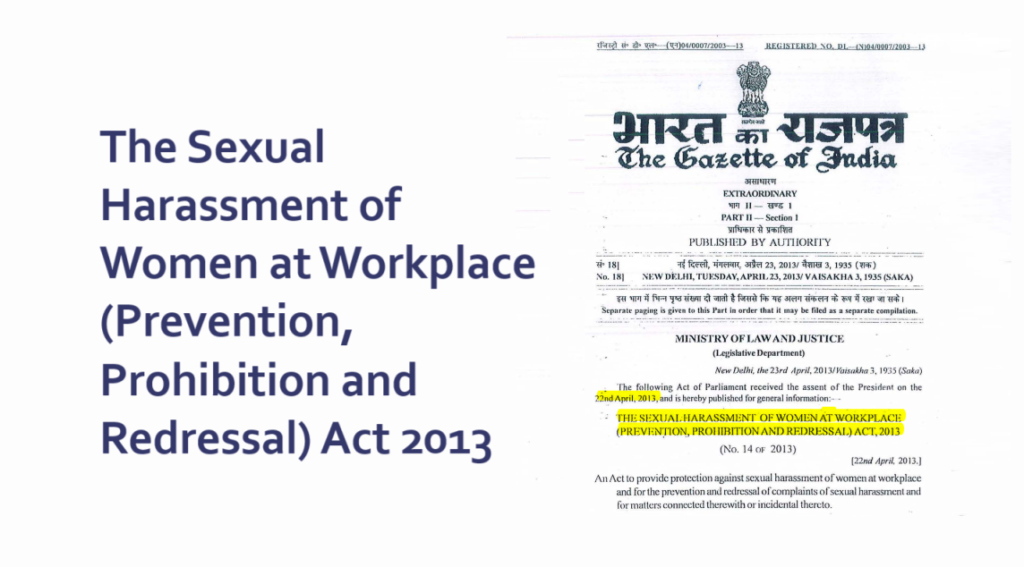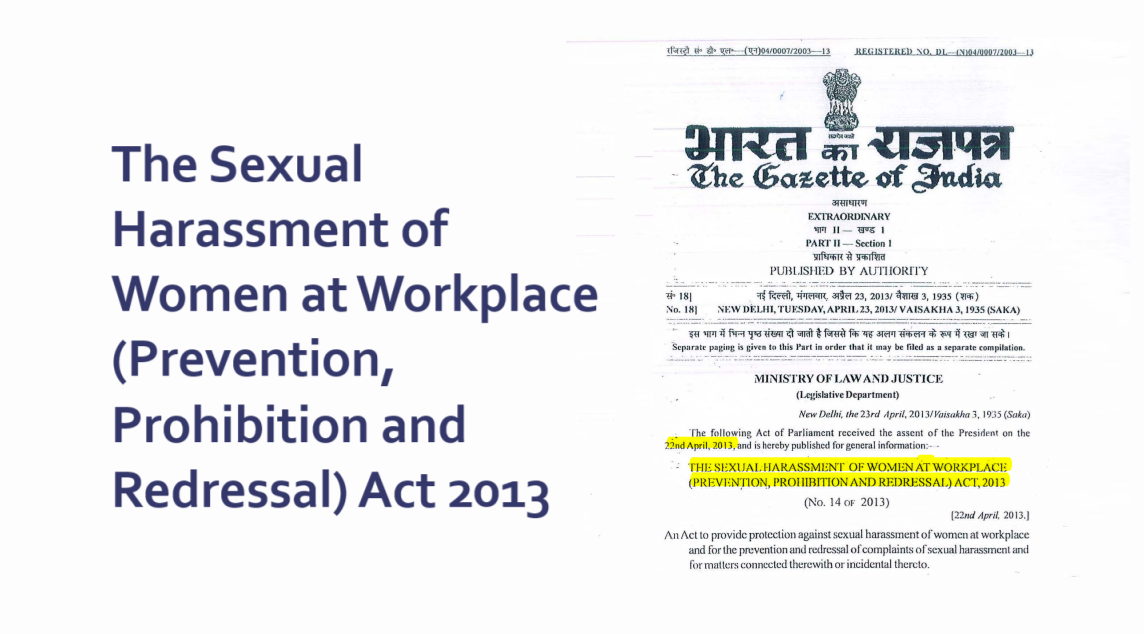
The Indian Sexual Harassment of Women at Workplace (Prevention, Prohibition, and Redressal) Act of 2013, known as the PoSH Act, was implemented on December 9, 2013. This Act, introduced by the Ministry of Women and Child Development, is a critical step for employers in India to address and prevent sexual harassment at the workplace. It empowers women employees to speak up against sexual misconduct in their work environment.

India’s PoSH Act, the nation’s inaugural legislative initiative, targets safe workplaces for women across all sectors. While its primary focus is women’s safety, many organizations have embraced gender-neutral PoSH policies, enhancing workplace security and harmony for everyone.
Understanding the Definition of Sexual Harassment Under the PoSH Act:
Employers and HR professionals need to be clear about what constitutes sexual harassment at work. The Act defines sexual harassment to include:
- Inappropriate physical contact or sexual advances
- Requests for sexual favors
- Sexually explicit remarks
- Showing pornography in the workplace
- Any other unwelcome physical, verbal, or non-verbal sexual conduct
Additionally, behaviors that result in a promise of preferential treatment, threats of negative treatment, or threatening related to an employee’s employment status can also be considered sexual harassment. Recognizing these behaviors is crucial for employers and HR teams to promote awareness and clarity about workplace sexual harassment.
Key Responsibilities of Employers Under the PoSH Act:
- Ensuring a Safe Workplace: Employers are responsible for creating and maintaining a safe work environment, protecting employees from harassment by colleagues, managers, and visitors.
- Formation of an Internal Committee: Organizations with 10 or more employees must establish an Internal Committee (IC) to address complaints of sexual harassment. The IC plays a vital role in the redressal process.
- Local Committees for Smaller Workplaces: For workplaces with fewer than 10 employees, a Local Committee (LC) in each district is required to handle sexual harassment complaints.
- Inquiry and Reporting Mechanisms: The IC/LC must inquire into complaints within 90 days and report their findings, recommending actions to the employer and district authority.
- Addressing False Complaints: The Act Commands actions against those who file false sexual harassment complaints.
- Employee Sensitization: Employers must conduct regular awareness programs, training, and workshops on sexual harassment prevention, led by expert trainers.
Beneficiaries of the Act:
Additionally, the Act safeguards all women employees, regardless of their employment terms. This embraces those engaged directly, through an agency, as volunteers, or on a temporary basis, encompassing diverse roles such as contract workers, interns, and apprentices.
Compliance with the PoSH Act:
Compliance is vital for creating a positive work environment and contributing to employee well-being, morale, and productivity. It also boosts the employer brand, attracting talent and aiding organizational growth. Non-compliance can result in significant financial penalties and damage to the organization’s reputation.
Consequences of Non-Compliance:
The PoSH Act can impose fines of up to Rs. 50,000 on organizations that fail to comply. If violations persist, fines can double, and the organization may lose its business permits, resulting in significant operational consequences. Therefore, following the PoSH Act not only ensures employee well-being but also maintains the organization’s market reputation, promoting a culture of respect and responsibility.



